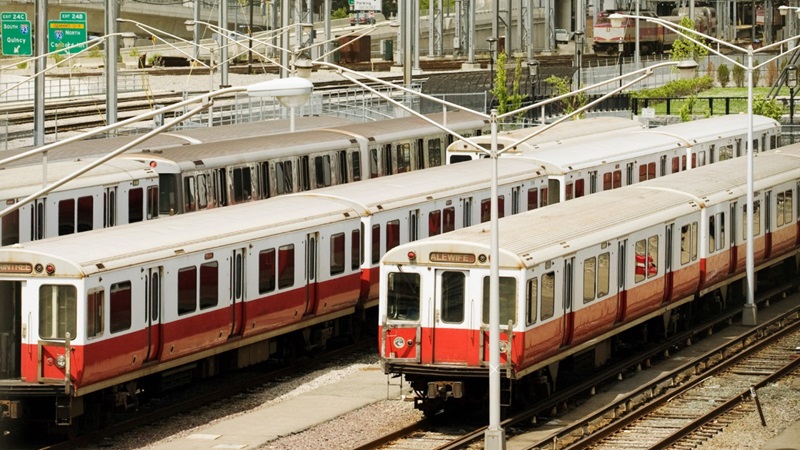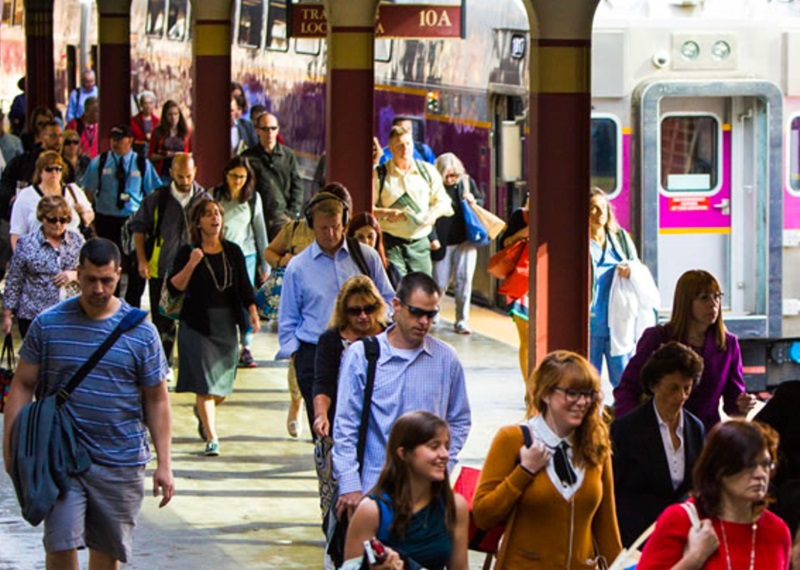With deficits looming at the T, no talk of spending cuts
Spending has increased sharply under Healey
by Bruce Mohl

AS THE MBTA grapples with a looming operating deficit and pushes for a more stable source of funding from the state, no one at the agency is talking about paring back spending.
MBTA officials are forecasting a nearly $700 million deficit in fiscal 2026, which begins next July. They also say the T will run short of cash to pay its bills some time between July and September next year.
The gloomy projections come as the agency’s spending continues to grow. MBTA expenses totaled $2.322 billion in fiscal 2023, with Healey taking over as governor from Charlie Baker halfway through that fiscal year. Expenses rose 17 percent the next year to $2.728 billion and are slated to go up another 10 percent this fiscal year to $3.021 billion. Current projections call for MBTA spending to hit $3.452 billion in fiscal 2029, an increase of $1.13 billion, or nearly 49 percent, in six years.
At a meeting of the MBTA’s audit and finance subcommittee on Thursday, directors continued a series of discussions centered around the T’s precarious financial situation and what caused it. They pointed to a 2000 initiative to put the T on solid financial footing by giving the authority a share of the state sales tax. Sales tax venues, however, never lived up to expectations.
T board member Thomas McGee said the T is making progress under General Manager Phillip Eng but the flow of money must continue. “The elephant in the room is we’re looking at a $700 million deficit several months from now. That is operating, which is just going to substantially grow. The revenue is the key piece for the future,” he said.
Betsy Taylor, the former chair of the MBTA board and the former head of finance at the Massachusetts Port Authority, briefed board members on efforts to hold down debt and pension costs in recent years. She also offered two suggestions for obtaining new revenue.
She recommended imposing a fee on all package and food deliveries, an idea that Transportation Secretary Monica Tibbits-Nutt endorsed back in April. Tibbits-Nutt is cochair of a task force charged with coming up with a new way of financing transportation in Massachusetts by the end of the year.
Taylor didn’t say how big she thought the delivery fee should be, but she said the revenue should be split between the Massachusetts Department of Transportation, the MBTA, regional transit authorities, and cities and towns where deliveries are made.
Taylor said the fee would be progressive, since wealthier people tend to order more home deliveries. She also said the fee would make practical sense, since the delivery companies are making a lot of money using public roadways. “They are causing congestion and wearing down the roads,” she said.

Her other recommendation was to be less conservative financially in issuing bonds. She said the T currently takes an approach that offers investors highly rated bonds with almost no risk. She said the T could possibly double its borrowing at minimal cost by increasing the risk slightly.
by Bruce Mohl
Commonwealth News
